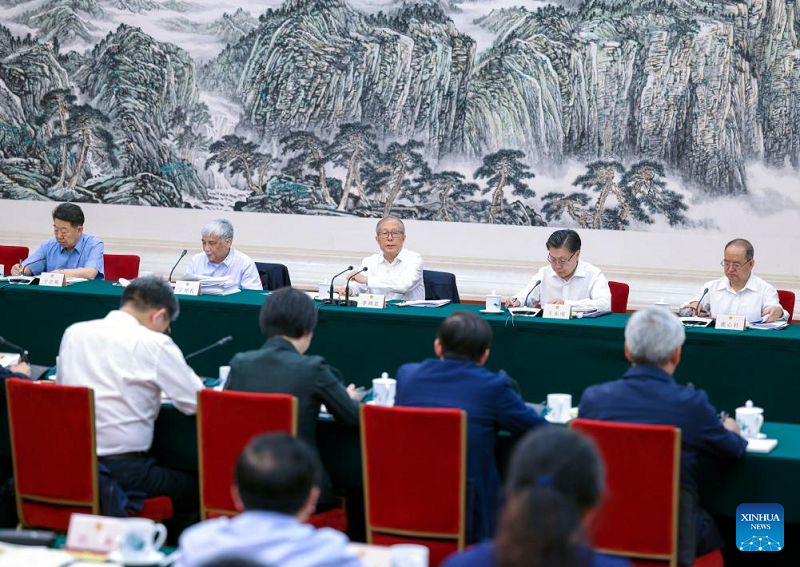Senior legislator stresses promoting Yellow River ecological protection

Li Hongzhong, a member of the Political Bureau of the Communist Party of China Central Committee and vice-chairman of the National People's Congress (NPC) Standing Committee, presides over an NPC Standing Committee meeting on an enforcement inspection of the Yellow River Protection Law and delivers a speech at the meeting in Beijing, capital of China, May 29, 2024. [Xinhua/Ding Lin]
BEIJING -- Li Hongzhong, vice-chairman of the Standing Committee of the National People's Congress, on Wednesday urged leveraging legal strength to promote ecological protection and high-quality development in the Yellow River Basin.
Li, also a member of the Political Bureau of the Communist Party of China (CPC) Central Committee, made the remarks during an NPC Standing Committee meeting on an enforcement inspection of the Yellow River Protection Law.
The Yellow River, China's second-largest river after the Yangtze, is dubbed the "mother river." In recent years, continued efforts have been made to protect its ecology, with the Yellow River Protection Law coming into effect on April 1, 2023.
He said the law is an important piece of legislation aimed at the ecological and environmental protection of a specific river basin, establishing an effective legal system for the protection of the Yellow River.
Li stated that the inspection should encourage the government at all levels to take a unified approach to protecting the Yellow River and address the prominent issues in implementing the law.
He demanded a problem-oriented approach, tracing the root causes and proposing practical and effective suggestions.
From June to September, the law enforcement inspection teams will conduct field inspections in seven provincial-level regions, including Shanxi, Shandong, Henan, Shaanxi, Qinghai, Gansu, and Ningxia.
Besides, a symposium on the implementation of the Yellow River Protection Law will be held in Inner Mongolia, and early-stage research will be conducted in Southwest China's Sichuan province, achieving full coverage of the nine regions within the Yellow River basin.
The inspection will cover a variety of aspects, such as ecological protection and restoration, water resource conservation, water-sediment regulation, and control of floods and pollution.



